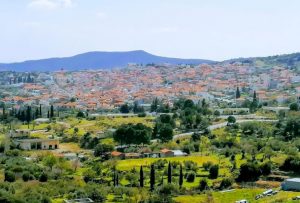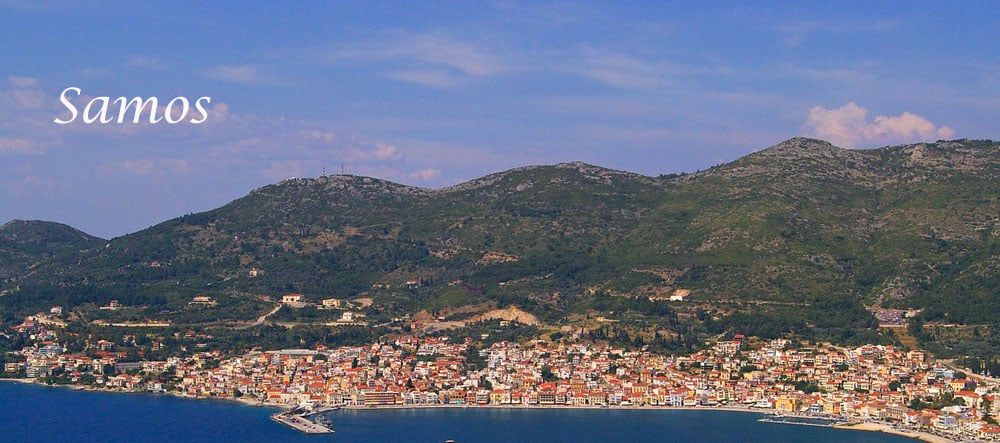The village of Mytilinii in Samos

It’s one of the larger villages in terms of population on the island. The residents are primarily engaged in agriculture, and the region is known for its vineyards and olive groves.
Samos, in general, has a rich history, and Mytilinioi is no exception. In the village and its surroundings, one can find traces of ancient settlements and artifacts.
The village is home to several churches, with the most notable being the Church of Metamorphosis. It’s a significant religious landmark in the village and hosts local religious festivals and events.
An attraction of the village is the Museum of Natural History, where an important place, among others, is occupied by the section with the fossils of animals that lived in Samos 8-10 million years ago and were found in excavations, which were carried out in a location very close to the village. The village has six churches and several chapels.
The village’s economy has traditionally been based on agriculture. The fertile plains around Mytilinioi are conducive to the cultivation of various crops, especially grapes. Samos is known for its wine, and Mytilinioi plays a crucial role in its production.
Like many Greek villages, Mytilinii has its local feasts and festivals, which are rooted in both religious and cultural traditions. These events offer visitors an authentic experience of local customs, music, dance, and food.
Mytilinioi provides a different atmosphere from the coastal towns of Samos. It offers a genuine, rustic charm, with its traditional houses, narrow streets, and the backdrop of lush green mountains.
For visitors to Samos who wish to experience the island beyond its beaches and tourist hotspots, a visit to Mytilinioi provides an opportunity to immerse oneself in local culture, history, and the serene beauty of the Greek countryside.
